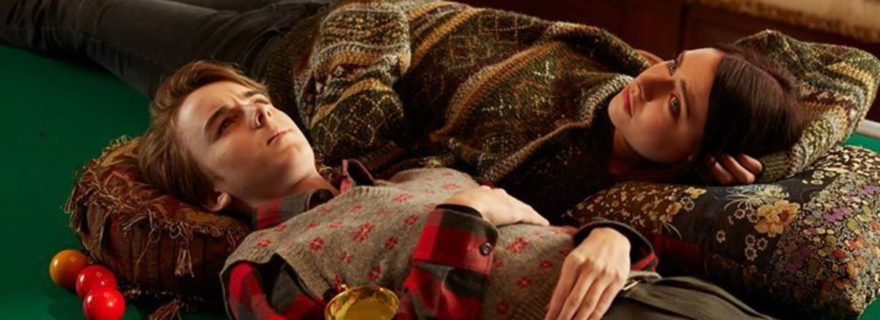'Considering Love and Other Magic'
Movie Rating:
2
It’s interesting how quickly some movies feel dated. When ‘Juno’ was released, for example, the surprise hit was hailed for its quirky comedic presentation of an impossibly wise teenager getting the better of everyone around her and learning to dial down her cynicism. Within a year or two, the tricks seemed tired and its impact was over. A decade later, ‘Considering Love and Other Magic’ feels like it was conceived in the wake of that film’s dated success and influence. The movie might have seemed fresh sometime in the early 2000s, but now it’s already a relic of an indie era that we’ve thankfully moved past.
Maddie Phillips stars as Jessie, a sad-sack, cynical seventeen-year-old who is over just about everyone around her and their bullshit. She does at least have a pretty good excuse for her teenage cynicism, though. Her younger brother killed himself not too long ago, which caused a big rift in her family. She’s in therapy and struggling to get over the trauma, to the cartoonish point of being convinced that her therapist’s white chair is actually red. (You know, like blood. Deep, right?) When her best friend discovers that Jessie is failing her classes, she signs her up to tutor for extra credit. She soon ends up accepting a tutoring gig with a kid even quirkier and more damaged than she is. His name is Tommy (Ryan Grantham) and he’s convinced that he’s actually a fictional character who hasn’t left the mansion of a legendary writer for a half century. Whoa! So quirky! Think he might be real? Think that maybe teaching this young man that he’s actually a real live boy could possibly help Jessie discover that she can get over her problems as well? Hmmm… I wonder.
‘Considering Love and Other Magic’ definitely falls into the school of post-Wes Anderson quirk comedies about solving big problems through subtle magical realism, yearning, and deadpan humor. ‘Juno’ was arguably the commercial peak of these sorts of movies and the genre slowly died after that. It’s hard to say when writer/director Dave Schultz came up with this film, but it’s definitely of that era. Every character is sad and secretly broken in ways that can be fixed with a single revelation. The story is set in a world where contemporary teens muse about Pet Sounds and typewriters and early 20th Century fiction and other cultural preoccupations about a generation and a half too old for their age. I’m sure the filmmaker means well and is trying to create something funny and poignant on a reasonable budget. The film is even well made from a technical standpoint. It’s just dramatically inert and nowhere near as clever as it thinks it is.
The messy comedy has a few good qualities. Schultz and his team give the movie a nicely crisp storybook aesthetic that’s more visually pleasing than most indie comedies. The lead teen performances by Maddie Phillips and Ryan Grantham are pretty strong, nicely detached and gently comedic without mugging. The adults, on the other hand…? Those performances aren’t quite so good. They vary from sleepy under-acting to flailing over-acting. The latter is mostly from Eric McCormack playing a quirky fictional detective/secret buddy like he’s auditioning for a goofy Wes Anderson supporting role that he’ll never get. The script attempts to transition from bleak deadpan comedy to melodramatic emotional flourishes with painful stabs at faux life philosophy far more cringeworthy than meaningful.
That’s a shame. Schultz knows how to rally a film crew to turn a tiny budget into a glossy feature and mine performances from a young cast showing depth beyond their years. With a better script, ‘Considering Love and Other Magic’ could have been a pleasant indie surprise. With this script, it’s an instantly forgettable stab at a style of cinematic comedy that went out of fashion almost a decade ago. Fortunately, it’s inoffensively bad and will disappear as quietly and unceremoniously as it arrives. Following the message the film desperately attempts to foist on viewers, it’s important to cherish those small pleasures in life.



